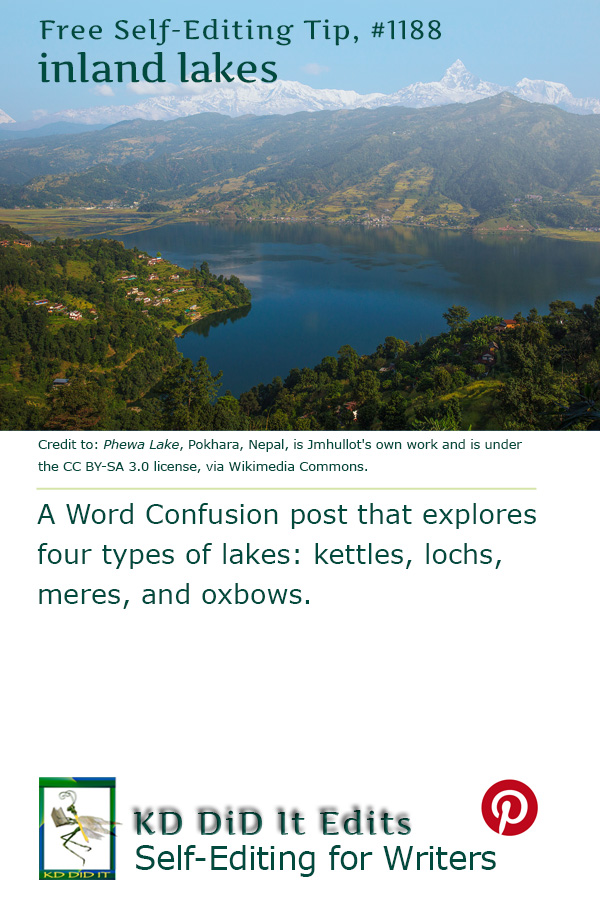It’s a continuation of my water fascination. In this case, an exploration of lakes, freshwater bodies of water that are bound by land and are larger than a pond. They may also be artificial such as a reservoir or naturally occurring.
Kettle lakes are also referred to as potholes because that’s what they look like, lol, a large hole in the ground.
A loch is usually formed by a glacier like kettles and are usually landlocked although they can also be an arm of the sea.
Meres may also be an arm of the sea and are always somewhat shallow in depth and wide in breadth.
Oxbow lakes are formed when a curving river breaks through the bank of a curve, forming a straighter path for the river. A new river bank starts to silt up, cutting the new oxbow lake off from the river.
The research on these lakes was fascinating with all the different ways in which they can evolve (or devolve), depending on the chemistry of the area and how the water flows (or doesn’t).
Exploring Later . . .
You may want to explore “Loch versus Lock“, as well as “Bay vs Bight vs Cove“, “Bayou vs Bog vs Marsh vs Swamp“, “Cay vs Key vs Quay“, “Creak versus Creek“, “Dock vs Pier vs Wharf“, “Harbor vs Marina vs Port vs Quay“, “Peer versus Pier“, “River vs Stream vs Tributary“, “Slew versus Slough“, and “Straight versus Strait“.
Word Confusions . . .
. . . started as my way of dealing with a professional frustration with properly spelled words that were out of context in manuscripts I was editing as well as books I was reviewing. It evolved into a sharing of information with y’all. I’m hoping you’ll share with us words that have been a bête noire for you from either end.
If you found this post on “Lakes: Kettle, Loch, Mere, and Oxbow” interesting, consider subscribing to KD Did It, if you’d like to track this post for future updates.
| Kettle Lake | Loch | Mere | Oxbow Lake |
|---|---|---|---|
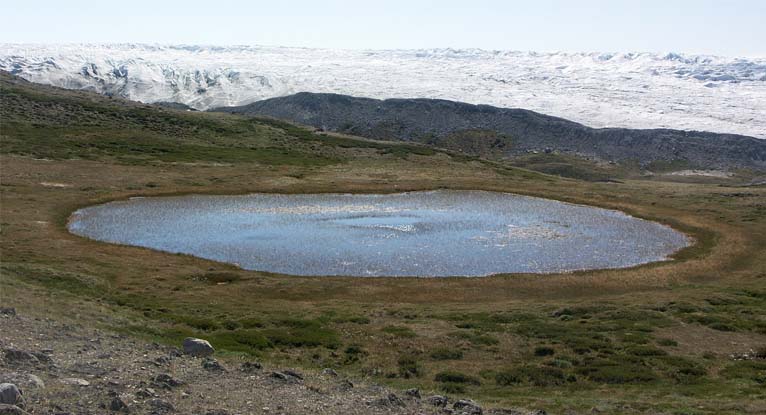
Kettle Glacial Lake Form, Isunngua, Greenland, is Algkalv‘s own work and is in the public domain, via Wikimedia Commons. — Yep, it looks like a pothole. |
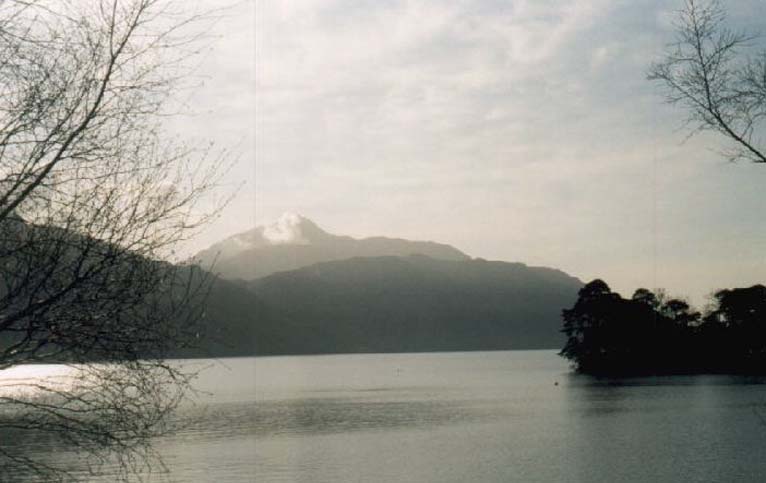
Ben Lomond, Scotland, was photographed by a friend of the uploader (Grinner) and is in the public domain, via Wikipedia Commons. — Ben Lomond is across Loch Lomond. |
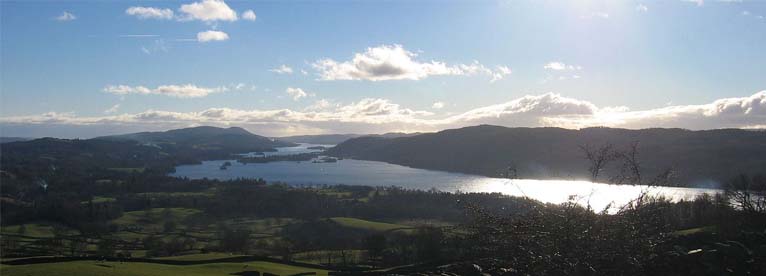
Lake Windermere, 2005, by J. Edward Taylor is under the CC BY-SA 2.0 license, via Wikimedia Commons. — It’s the mere that tips you off. |
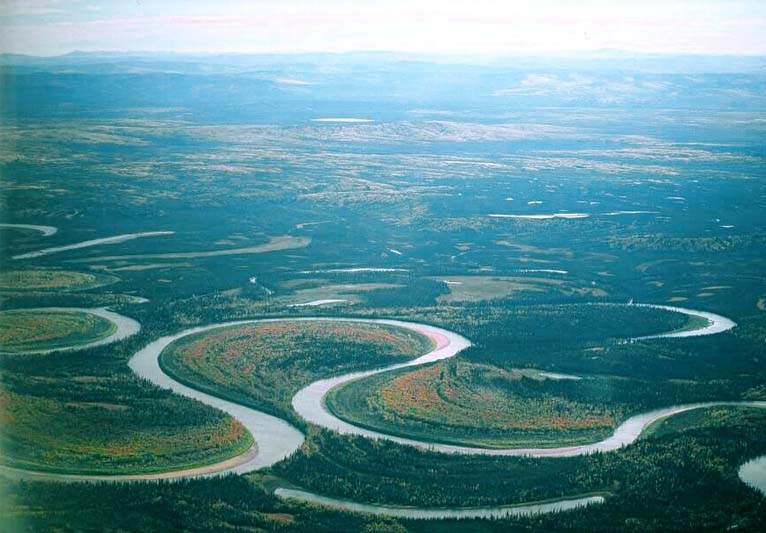
Meanders of Nowitna River, Alaska, is Oliver Kurmis‘s own work and under the CC BY-SA 2.0. de license, via Wikimedia Commons. — There are two oxbow lakes visible. |
| Part of Grammar: | |||
| Noun
Plural: kettle lakes A.k.a. kettle, kettle hole, kettle hole lake, kettle pond, pothole |
Noun
Plural: lochs |
Noun
Plural: meres |
Noun
Plural: oxbow lakes A.k.a. baor |
| A water-filled pothole formed in the ground by a retreating glacier from millions of years ago, which lost chunks of ice with the ice becoming trapped in sediment or draining floodwaters | [Scottish] Large lakes formed as a result of U-shaped valleys carved out by glaciers where rivers run into and leave a body of water and small lakes formed from a pocket carved out of a mountain side
Most often refers to lakes but may also refer to inlets, bays, and estuaries |
A lake that has a large surface in proportion to the volume of water it contains
A shallow lake, pond, or wetland, particularly in Great Britain and other parts of western Europe |
A type of curved lake which is formed when a wide meander, a.k.a. a curve, from a stream or a river is cut off to form a lake, usually when the river took a new, straighter course
[Australia] A billabong [South Texas] A resaca |
| Examples: | |||
| “The Kettle Moraine, a region of Wisconsin covering an area from Green Bay to south-central Wisconsin, has numerous kettles, moraines and other glacial features.”
“It has many kettle lakes, some of which are 100 to 200 feet deep.” “Fresh water kettles are important ecological niches for some symbiotic species of flora and fauna.” Credit to: Kettle “Minnesota, the acclaimed land of 10,000 lakes is filled with kettles” (Troutman). America’s best known kettle lake is Henry David Thoreau’s Walden Pond in Concord, Massachusetts. Most kettles are circular in shape because melting blocks of ice tend to become rounded; distorted or branching depressions may result from extremely irregular ice masses. |
Loch Ness is the most famous Scottish lake.
“Loch Raven Reservoir is a reservoir in Baltimore County, Maryland.” There is a lake called Loch Garry named by Clan MacDonell of Glengarry who settled in Canada’s Glengarry County in Eastern Ontario. Credit to: Loch |
“The bed of the shallow mere is aerated and bottom-feeding fish and wildfowl can survive, providing a livelihood for people.”
“The Fens of eastern England, as well as fen, lowland moor (bog), and other habitats, included a number of meres.” Credit to: Mere “Grasmere is one of the smaller lakes of the English Lake District” (Grasmere). |
“Oxbow lakes are stillwater lakes, with no current flowing through them, the entire lake gradually silts up, becoming a bog or swamp, and then evaporating completely.”
“Cuckmere Haven in Sussex, England, contains a widely meandering river with many oxbow lakes, often referred to in physical geography textbooks.” “There are many oxbow lakes alongside the Mississippi River and its tributaries.” “The largest oxbow lake in North America, Lake Chicot (located near Lake Village, Arkansas), was originally part of the Mississippi River, as was Horseshoe Lake, the namesake for the town of Horseshoe Lake, Arkansas.” Credit to: Oxbow |
| History of the Word: | |||
| Old English cetel, cietel is of Germanic origin, based on the Latin catillus, diminutive of catinus meaning deep container for cooking or serving food.
In Middle English the word’s form was influenced by the Old Norse ketill. |
Insular Celtic in origin and comes from the Proto-Indo-European *lókus meaning lake, pool and is related to the Latin lacus meaning lake, pond, and the English lay meaning lake. | Old English as mere meaning sea, lake, corresponding to the Old Saxon meri, the Old Low Franconian *meri (the Dutch meer meaing lake, pool, the Picard mer meaning pool, lake, the Northern French toponymic element -mer), the Old High German mari / meri (German Meer meaning sea), the Goth. mari-, marei, the Old Norse marr meaning sea (the Norwegian mar meaning sea, the Shetland Norn mar meaning mer, deep water fishing qarea, the Faroese marrur meaning mud, sludge, the Swedish place name element mar-, the French mare meaning pool, pond). | First recorded before 900, the Middle English oxe, the Old English oxa; cognate with the Old Frisian oxa, the Old Saxon, the Old High German ohso, the Old Norse uxi, oxi and akin to the Welsh ych combined with the Old English boga, first recorded before 1000, the Middle English noun boue, bouwe, cognate with the Dutch boog, the German Bogen, the Old Norse bogi.
Combined, oxbow is a Middle English word dating back to 1325–75. |
C’mon, get it out of your system, bitch, whine, moan . . . which words are your pet peeves? Also, please note that I try to be as accurate as I can, but mistakes happen or I miss something. Email me if you find errors, so I can fix them . . . and we’ll all benefit!
Satisfy your curiosity about other Word Confusions on its homepage or more generally explore the index of self-editing posts. You may also want to explore Book Layout & Formatting Ideas, Formatting Tips, Grammar Explanations, Linguistics, Publishing Tips, the Properly Punctuated, Writing Ideas and Resources, and Working Your Website.
Resources for Lakes: Kettle, Loch, Mere, and Oxbow
Some of these links may be affiliate links, and I will earn a small percentage, if you should buy it. It does not affect the price you pay.
Apple Dictionary.com
Cambridge Dictionary: oxbow lake
“Grasmere (Lake).” Wikipedia. 4 July 2022. Web. 8 July 2023. <https://en.wikipedia.org/wiki/Grasmere_(lake)>.
“Kettle (Landform).” Wikipedia. 2 May 2023. Web. 8 July 2023. <https://en.wikipedia.org/wiki/Kettle_(landform)>.
“Loch.” Wikipedia. 11 Apr 2023. Web. 8 July 2023. <https://en.wikipedia.org/wiki/Loch>.
“Mere (Lake).” Wikipedia. 21 Dec 2022. Web. 8 July 2023. <https://en.wikipedia.org/wiki/Mere_(lake)>.
“Oxbow Lake.” Wikipedia. 8 June 2023. Web. 8 July 2023. <https://en.wikipedia.org/wiki/Oxbow_lake>.
Troutman, Michael. “Kame and Kettle Topography.” Story Maps. 2 Apr 2021. Web. 8 July 2023. <https://storymaps.arcgis.com/stories/a249f7532097469d929161ffa36fed21>.
Pinterest Photo Credits:
Phewa Lake, Pokhara, Nepal, is Jmhullot‘s own work and is under the CC BY-SA 3.0 license, via Wikimedia Commons.


